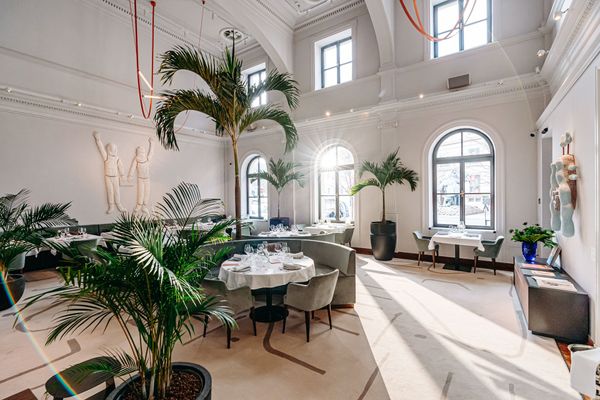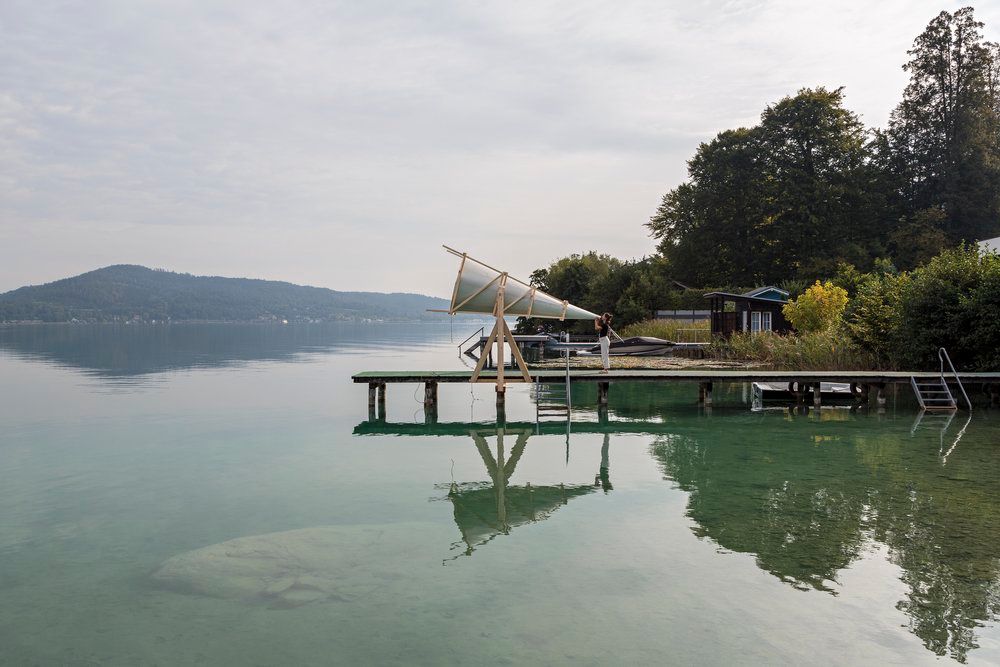What is nanotourism? This concept is a site-specific alternative, focused specifically on the benefits of the area, which goes beyond the conventional principles of tourism: it is an attitude aimed at improving the everyday environment and opening up new opportunities for the local economy. You could also call it alternative rural development and other innovative projects, but it has one essence: the creative development of the local community through local assets. This is perfectly illustrated by the AA Visiting School’s summer project, which takes a new perspective on Lake Wörth in Austria.
Lake Wörth, one of Austria’s largest lakes, has in recent years become a truly upmarket resort—as a result, romantic family holiday homes and hotels have been massively replaced by private villas, increasingly crowding out the public stretches of shore. It is also the summer residence of the Vienna Boys Choir, perhaps one of the last places open to the public. Although the six-hectare estate is filled with the singing of the Boys Choir for nearly two months, it remains unused for the rest of the year. Based on this, the team invited the AA Nanotourism Visiting School, and in a joint project, they explored the existing natural and cultural potential of the estate.
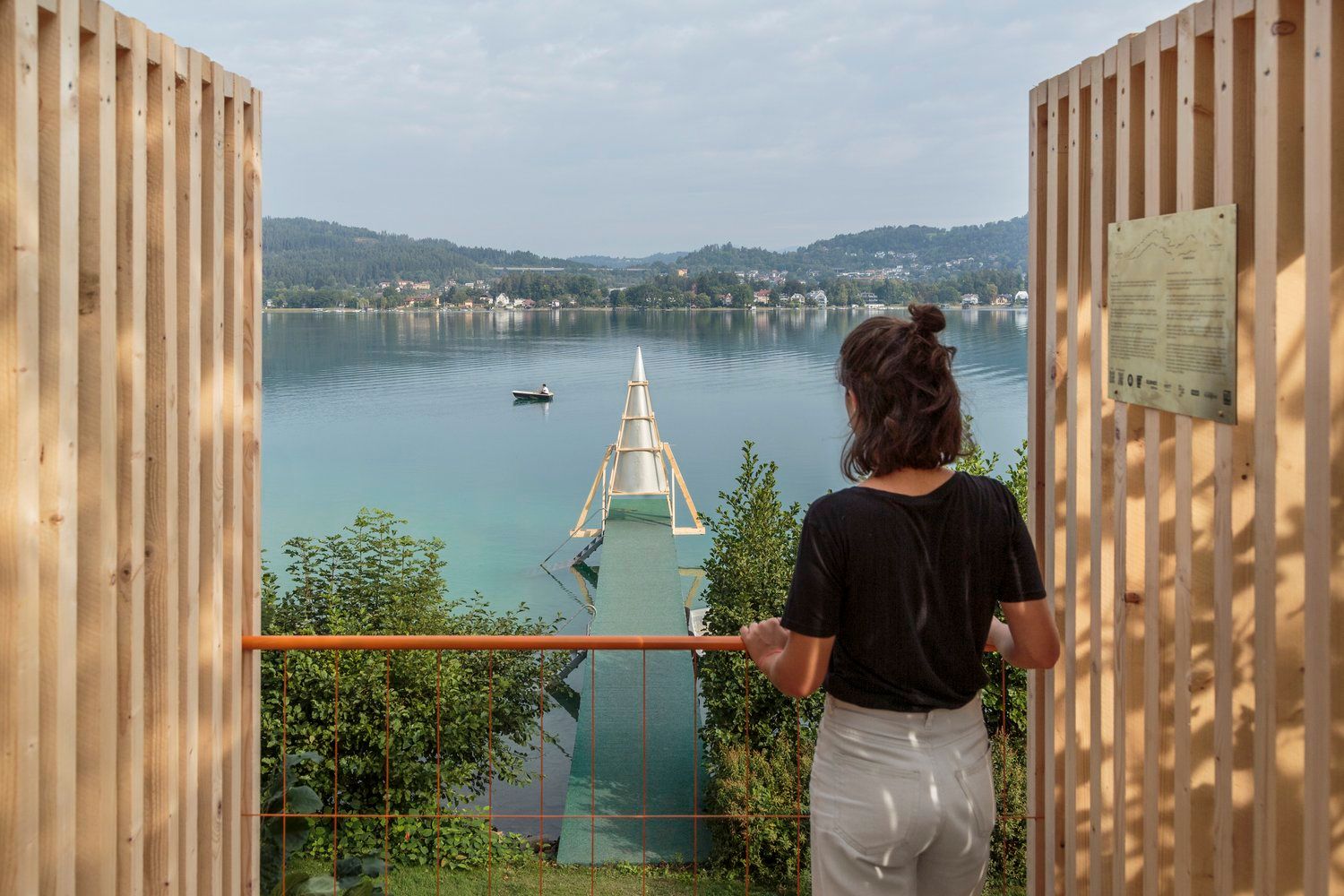
The project comprises three installations: the Exchange Fence discusses the importance of the fence and explores its potential transformation into a socially cohesive, multi-purpose element of the local community. Sound Cannon draws attention to the lack of local cultural presence of the Vienna Boys Choir. Stare! criticizes the excessive privatization of the lakefront and sets an example for privately owned public spaces.
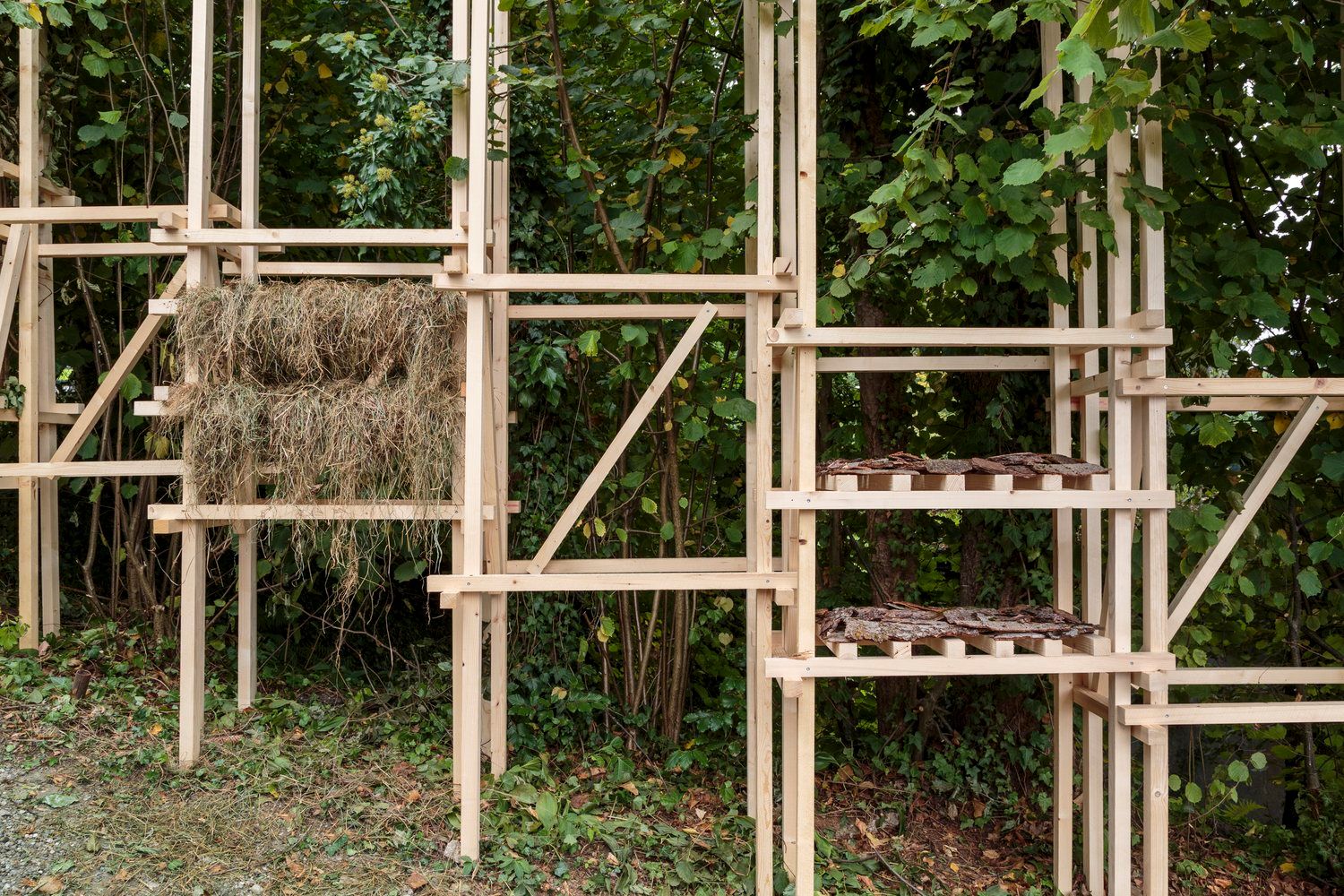
Replacing the existing monofunctional and dividing fence, and recognizing the social and economic potential of its typology, the project proposes a different model: the three-dimensional structure will continue to frame the space, which will also function as a year-round repository for natural waste produced in the garden and as a marketplace—stimulating local “barter” and dialogue on land privatization and sustainable living.
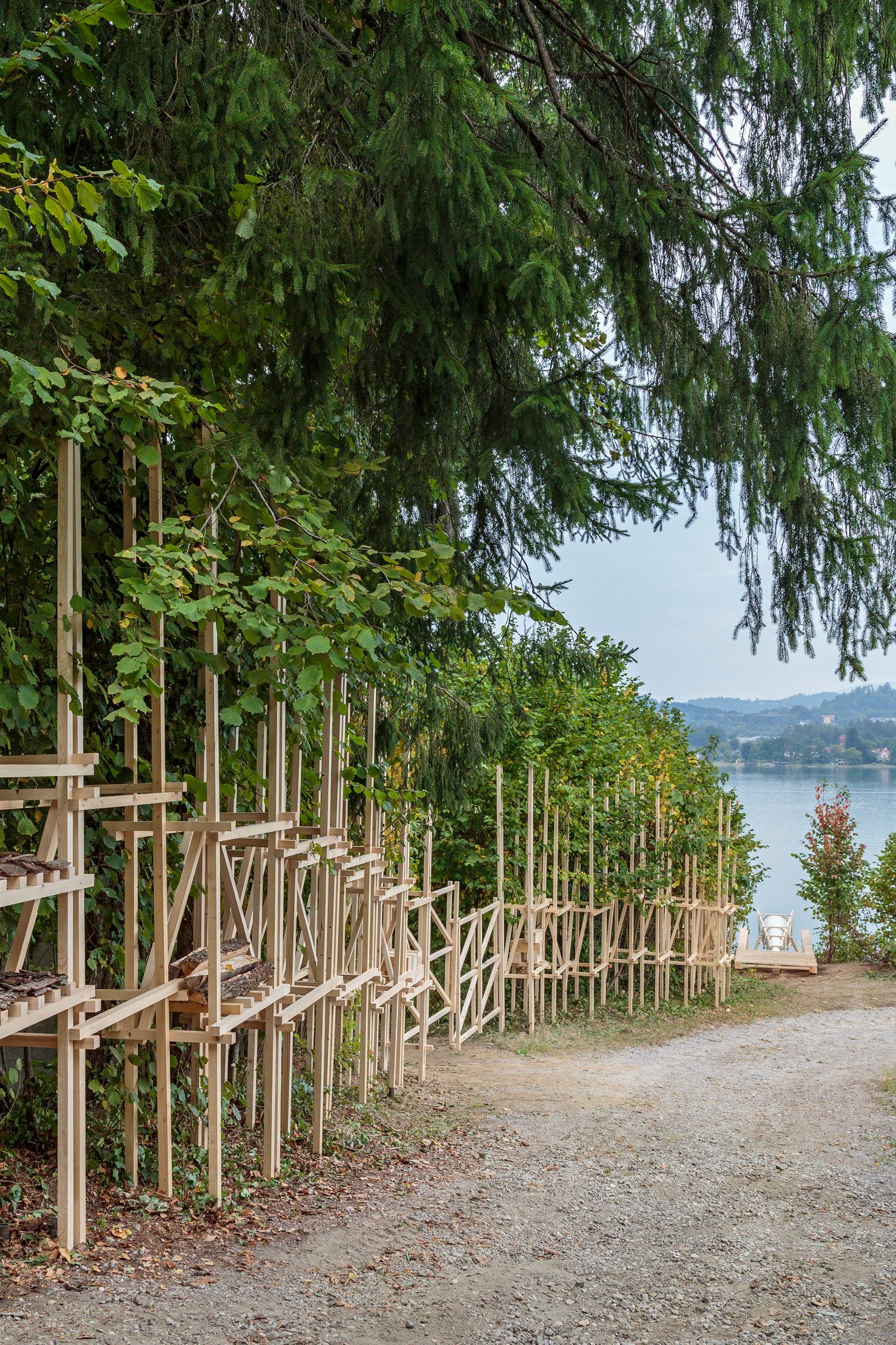
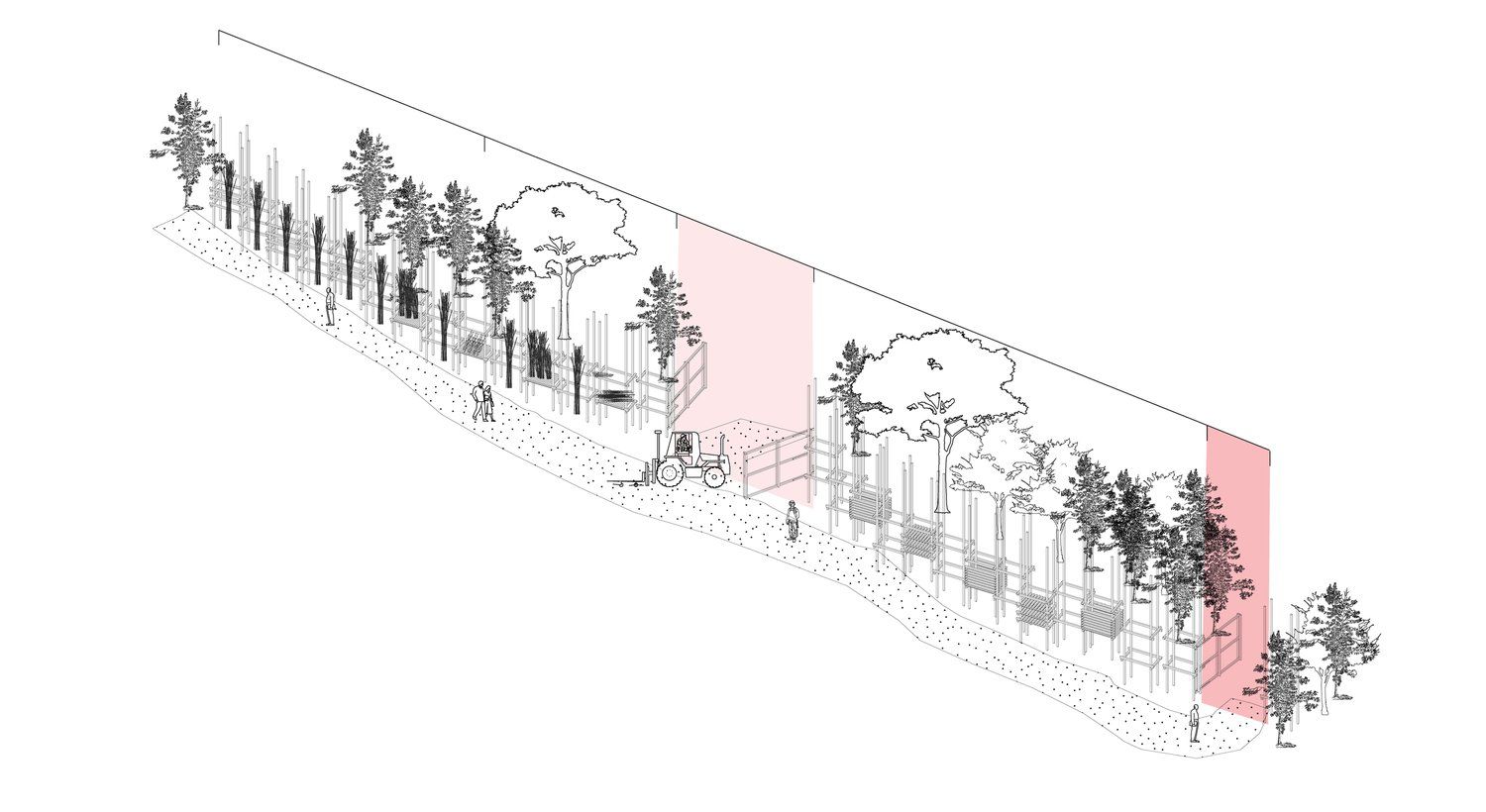
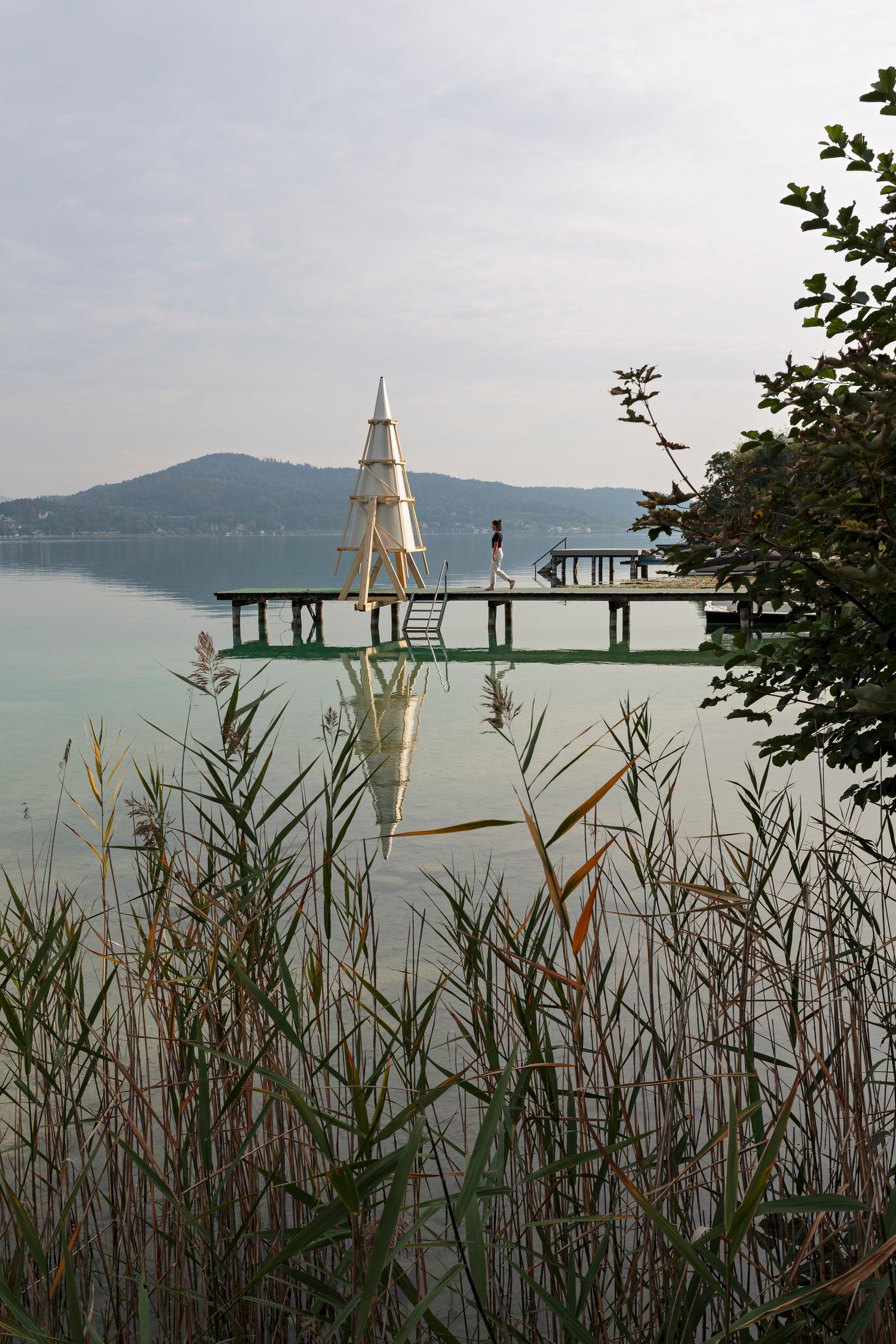
The talent of the Vienna Boys Choir is internationally recognized, yet unknown to the lake community—in an effort to give the choir a voice, the project envisions the lake as a sound medium that will use a tilting horn to spread the choir’s high cultural identity among locals living around the lake.

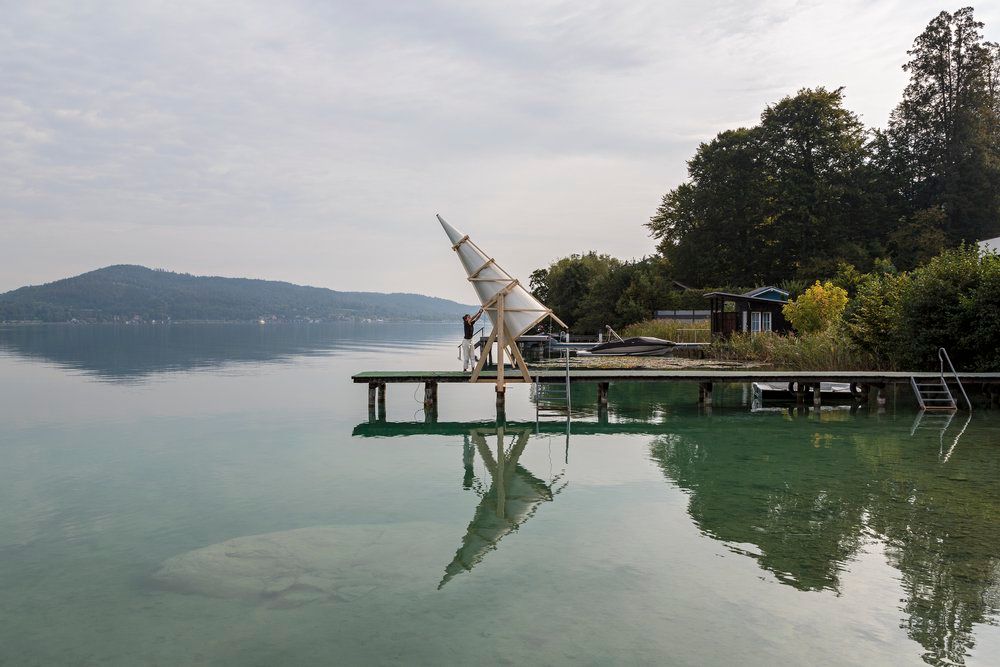
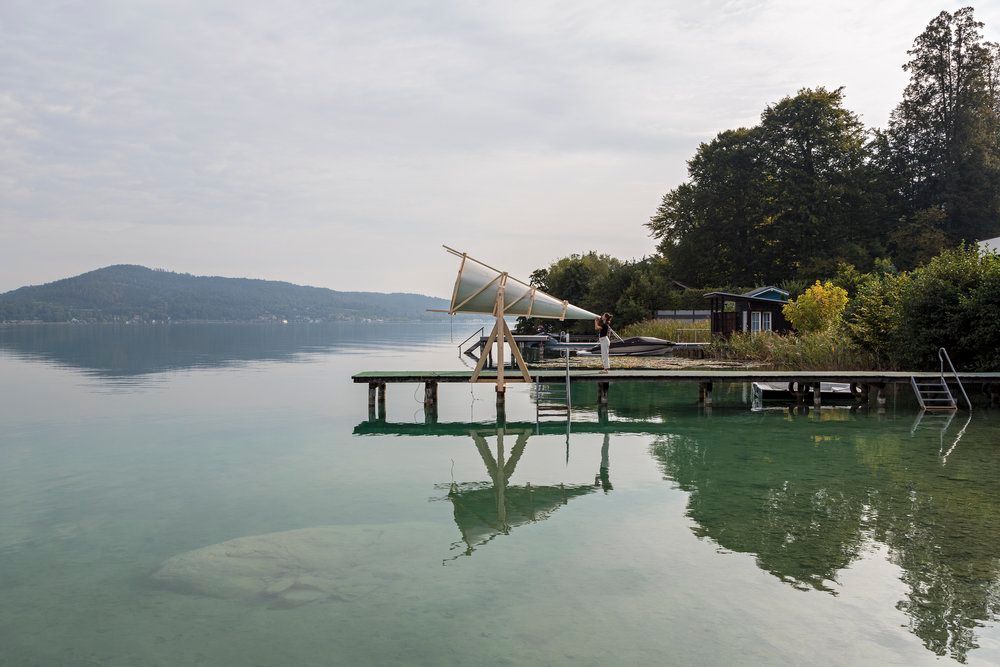
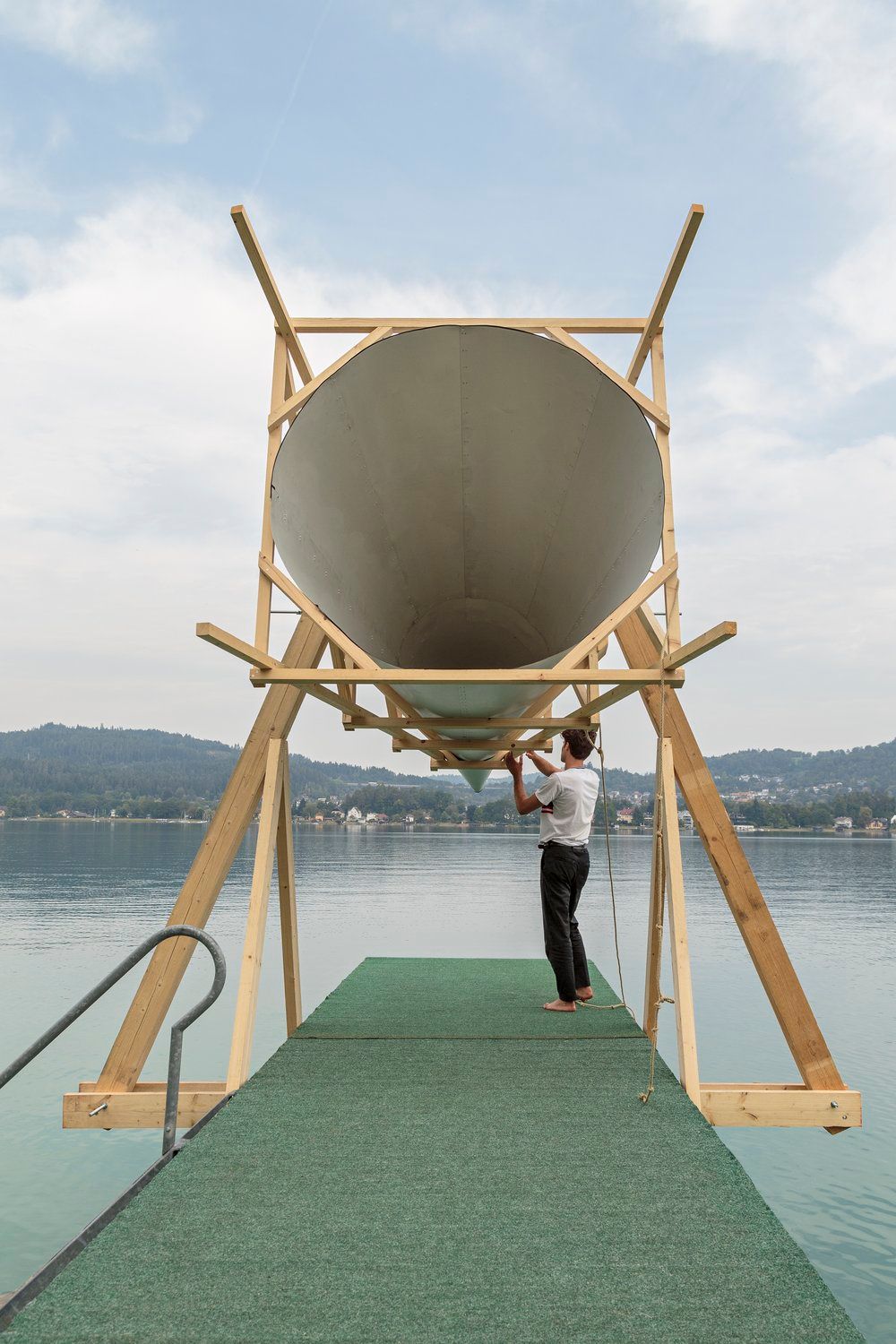
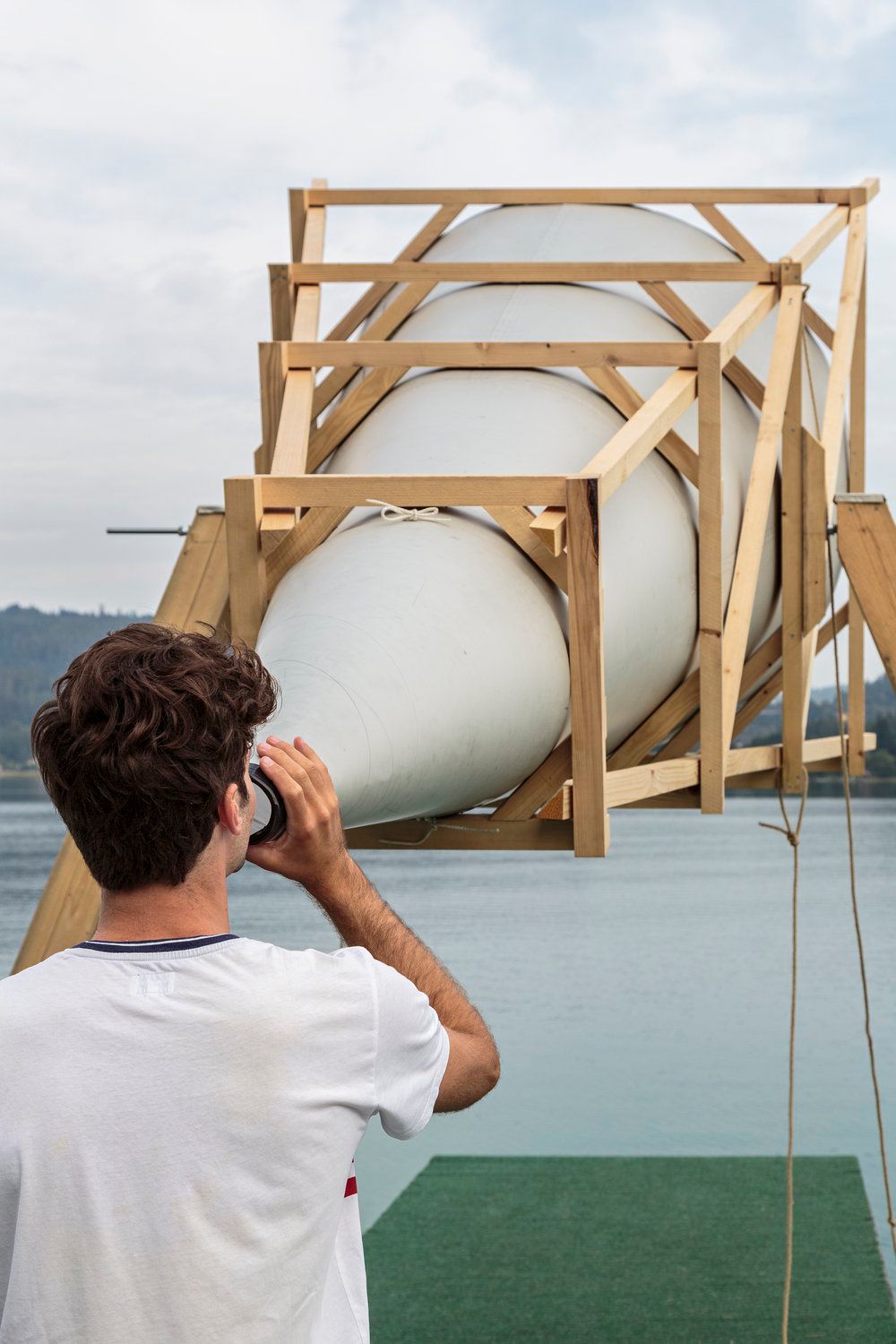

In response to the predominance of fenced-off properties that privatize the lakeside view, Stare! offers several alternatives: a lookout, a nostalgic object commemorating the former lakeside, and a narrow observation deck that can also strengthen the connection between the choir and the locals.
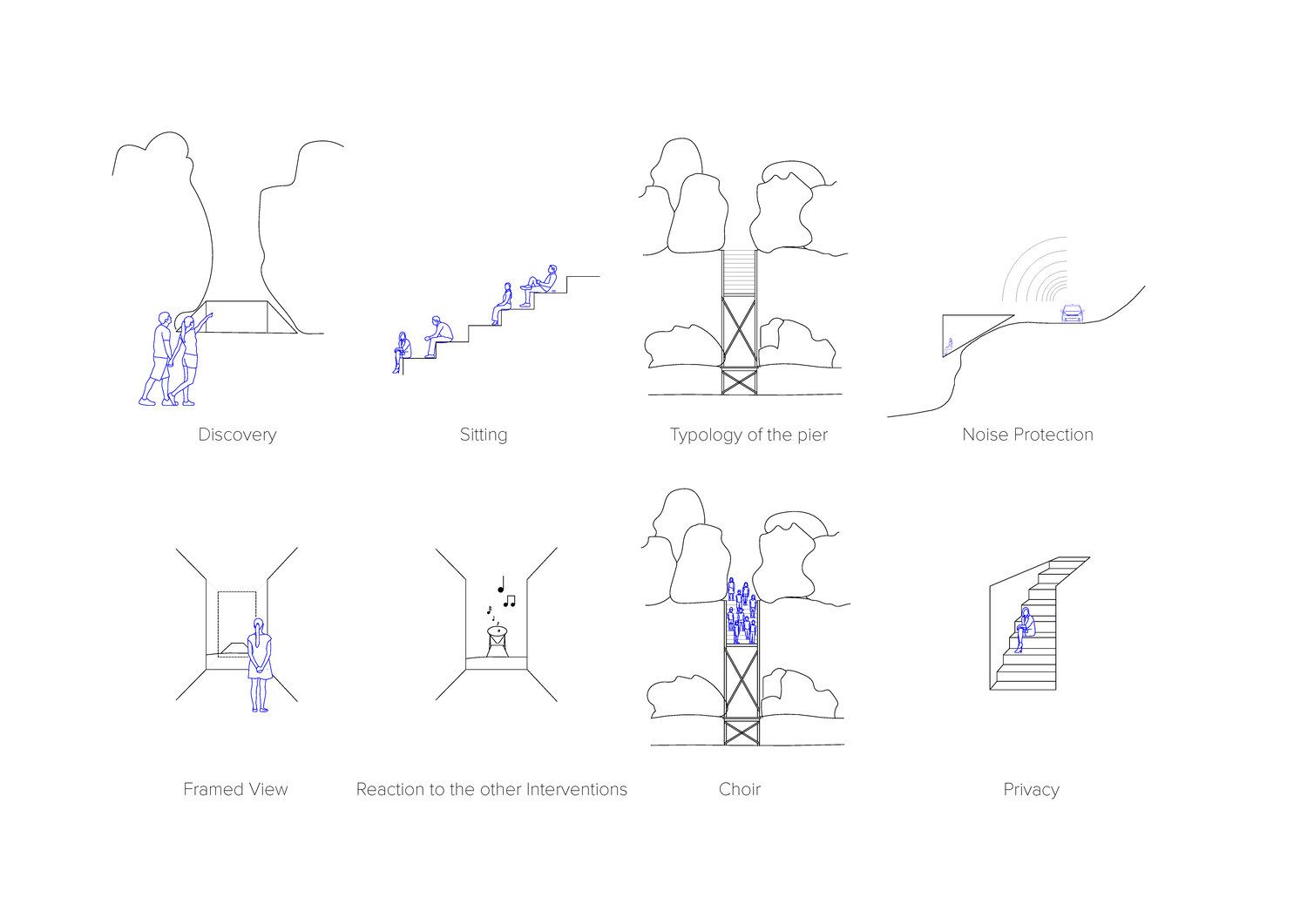
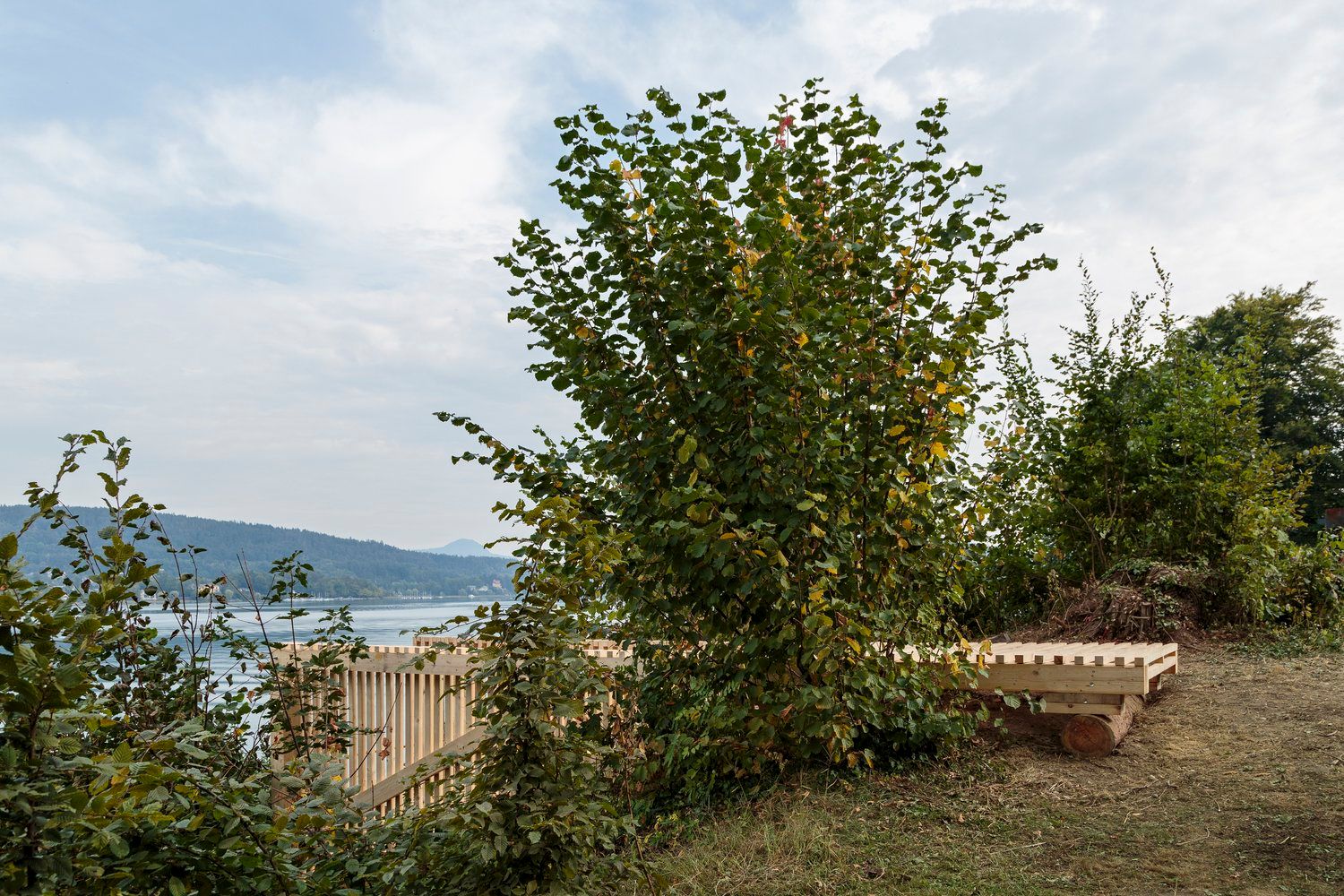
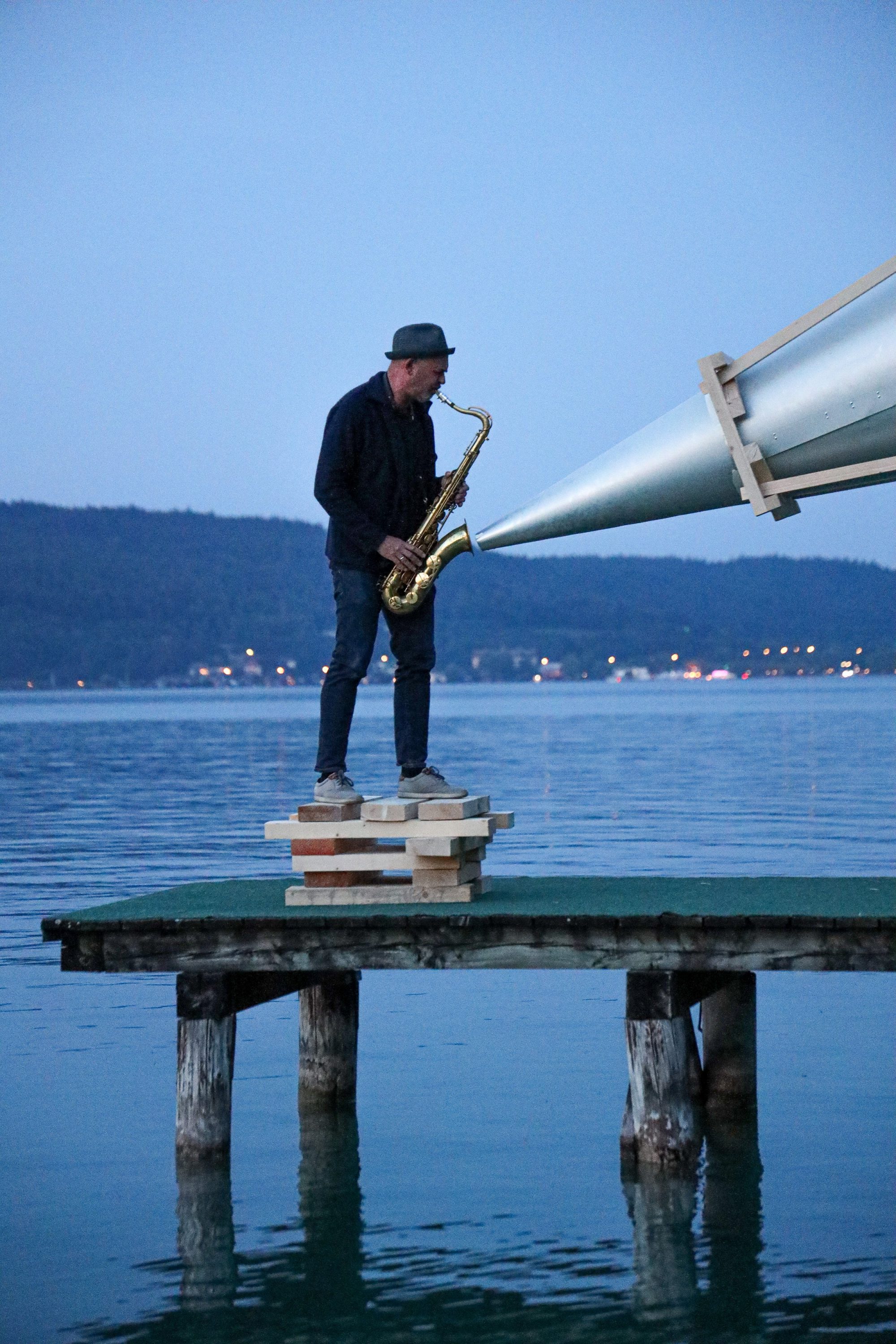
AA nanoturism Visiting School | Web | Facebook | Instagram
Source: Outsider
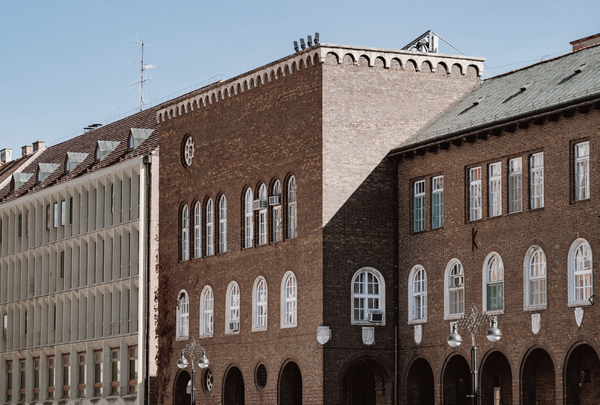
Essence of Hungary | Guide to Szeged region
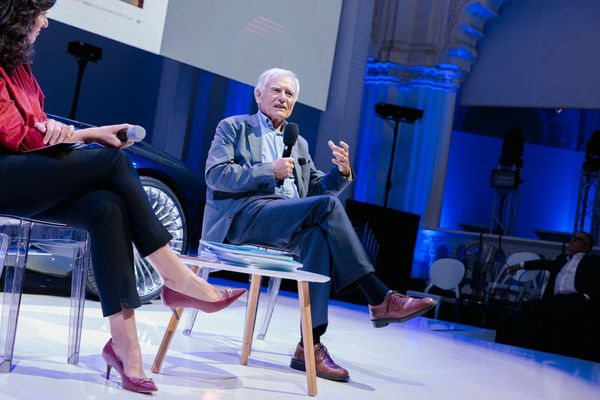
Best of Stefan Lengyel 2022 | MOME—Institute for Theoretical Studies
